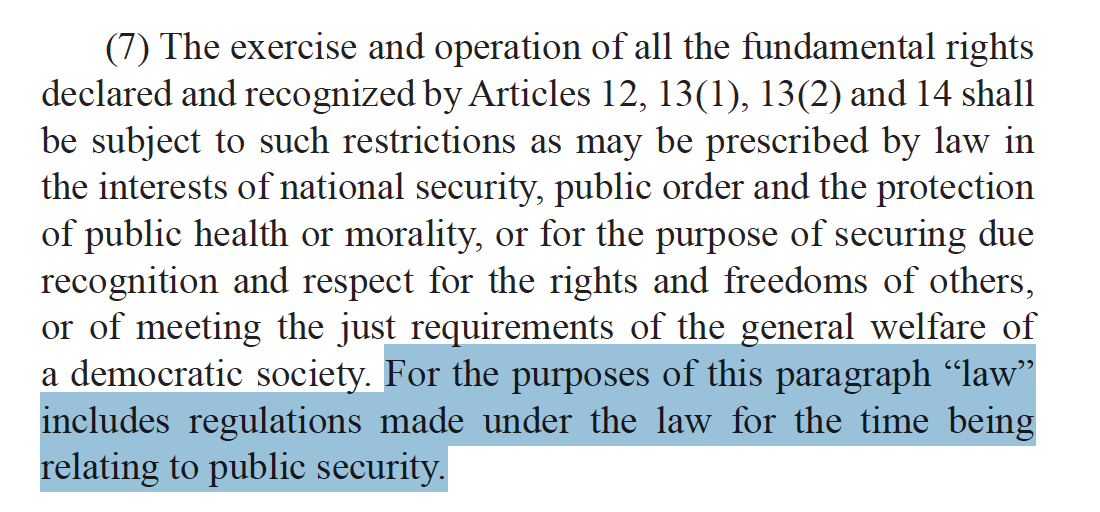
Yesterday's travesty in Hejaaz Hizbullah's case exemplifies why the Prevention of Terrorism Act in all shapes and forms MUST BE REPEALED.
The decision by the trial judge to refuse bail, despite the AG consenting to bail, flows from s. 15(2) of the #PTA.
1/
@Justice4Hejaaz
The decision by the trial judge to refuse bail, despite the AG consenting to bail, flows from s. 15(2) of the #PTA.
1/
@Justice4Hejaaz

S. 15(2) becomes relevant once the indictment is received by the High Court.
It makes it mandatory for the judge to remand the accused until the conclusion of the trial (note the distinction in Ahnaf's case - where no indictment was served).
@Justice4Hejaaz
2/
It makes it mandatory for the judge to remand the accused until the conclusion of the trial (note the distinction in Ahnaf's case - where no indictment was served).
@Justice4Hejaaz
2/
So despite the AG consenting to bail, the trial judge went for a strict application of s. 15(2).
S. 7 of the PTA makes reference to the AG consenting to bail, but only when the matter is still before a magistrate.
@Justice4Hejaaz
3/
S. 7 of the PTA makes reference to the AG consenting to bail, but only when the matter is still before a magistrate.
@Justice4Hejaaz
3/

Now, none of these absurd provisions are amended by the proposed amendments to the PTA.
Under the new s. 15B, the Court of Appeal would be authorised to grant bail ONLY if the trial has not commence after 12 months since the initial arrest.
@Justice4Hejaaz
4/
Under the new s. 15B, the Court of Appeal would be authorised to grant bail ONLY if the trial has not commence after 12 months since the initial arrest.
@Justice4Hejaaz
4/

In fact, the proposed amendments specifically retain the authority of the High Court to remand the accused until the conclusion of the trial.
Bottom line: Hejaaz's situation would have been no different under an amended PTA.
@Justice4Hejaaz
5/

Bottom line: Hejaaz's situation would have been no different under an amended PTA.
@Justice4Hejaaz
5/


If the PTA is strictly applied, justice can almost never be served.
Yet there is nothing preventing a judge (and now the Court of Appeal) from applying constitutional principles that supersede the PTA, to:
just.grant.bail.
@Justice4Hejaaz
6/
Yet there is nothing preventing a judge (and now the Court of Appeal) from applying constitutional principles that supersede the PTA, to:
just.grant.bail.
@Justice4Hejaaz
6/
• • •
Missing some Tweet in this thread? You can try to
force a refresh





